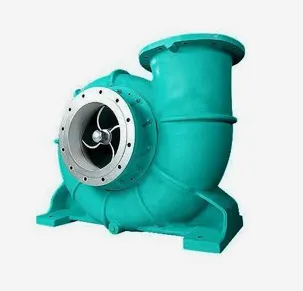irish
- Afrikaans
- Albanian
- Amharic
- Arabic
- Armenian
- Azerbaijani
- Basque
- Belarusian
- Bengali
- Bosnian
- Bulgarian
- Catalan
- Cebuano
- Corsican
- Croatian
- Czech
- Danish
- Dutch
- English
- Esperanto
- Estonian
- Finnish
- French
- Frisian
- Galician
- Georgian
- German
- Greek
- Gujarati
- Haitian Creole
- hausa
- hawaiian
- Hebrew
- Hindi
- Miao
- Hungarian
- Icelandic
- igbo
- Indonesian
- irish
- Italian
- Japanese
- Javanese
- Kannada
- kazakh
- Khmer
- Rwandese
- Korean
- Kurdish
- Kyrgyz
- Lao
- Latin
- Latvian
- Lithuanian
- Luxembourgish
- Macedonian
- Malgashi
- Malay
- Malayalam
- Maltese
- Maori
- Marathi
- Mongolian
- Myanmar
- Nepali
- Norwegian
- Norwegian
- Occitan
- Pashto
- Persian
- Polish
- Portuguese
- Punjabi
- Romanian
- Russian
- Samoan
- Scottish Gaelic
- Serbian
- Sesotho
- Shona
- Sindhi
- Sinhala
- Slovak
- Slovenian
- Somali
- Spanish
- Sundanese
- Swahili
- Swedish
- Tagalog
- Tajik
- Tamil
- Tatar
- Telugu
- Thai
- Turkish
- Turkmen
- Ukrainian
- Urdu
- Uighur
- Uzbek
- Vietnamese
- Welsh
- Bantu
- Yiddish
- Yoruba
- Zulu
Telephone: +86 13120555503
Email: frank@cypump.com
Nov . 12, 2024 02:15 Back to list
clean water transfer pump
The Importance of Clean Water Transfer Pumps
In the modern world, access to clean water is a fundamental human right as well as a vital resource for economic and social development. However, ensuring that clean water is effectively transported from its source to various end-users is a complex task that requires efficient systems and technologies. One of the key components of this system is the clean water transfer pump.
What are Clean Water Transfer Pumps?
Clean water transfer pumps are specialized pumps designed to move potable water from one location to another. They are commonly used in various applications including municipal water supply systems, agricultural irrigation, construction sites, and emergency water supply operations. These pumps work by creating a pressure differential that allows water to flow through pipes and reach its destination, usually from a reservoir or treatment facility to homes, businesses, or irrigation systems.
Types of Clean Water Transfer Pumps
There are several types of clean water transfer pumps, each designed to meet specific needs
1. Centrifugal Pumps These are perhaps the most common type of clean water pump. They utilize a rotating impeller to increase water velocity, creating a flow that can be directed through piping systems. Centrifugal pumps are often chosen for their efficiency and ability to handle large volumes of water.
2. Submersible Pumps Designed to operate underwater, submersible pumps are often used in wells or boreholes to extract water. They are particularly useful for deep groundwater extraction and are designed to prevent any contamination during the transfer process.
3. Diaphragm Pumps These pumps utilize a flexible diaphragm to create a pumping action. They are ideal for situations where precise control of water flow is necessary, such as in irrigation systems where the amount of water needs to be carefully managed.
4. Positive Displacement Pumps These pumps create a specific volume of water being moved with every cycle. They are suitable for applications requiring high pressure, such as water delivery in high-rise buildings.
clean water transfer pump

Benefits of Using Clean Water Transfer Pumps
1. Efficient Water Management By utilizing clean water transfer pumps, municipalities and agricultural operations can manage their water supply more effectively. This is especially important in areas affected by drought or water scarcity.
2. Improved Public Health Access to clean water reduces the incidence of waterborne diseases, which can be prevalent in regions that do not have proper water supply systems. Transfer pumps can help ensure that communities receive treated and safe drinking water.
3. Scalability and Flexibility Clean water transfer systems can be scaled according to the needs of the community or operation. Whether it is a small village or a large metropolitan city, these pumps can be integrated into various infrastructures.
4. Cost-Effective Solutions Although the initial investment in clean water transfer pumps may be significant, the long-term savings in terms of health costs, water loss prevention, and maintenance often make it a cost-effective solution.
Challenges and Considerations
While clean water transfer pumps have significant advantages, there are challenges that must be addressed. Maintenance is critical to ensure the longevity and efficiency of the pumps. Failure to properly maintain these pumps can lead to breakdowns, resulting in water loss and increased costs.
Moreover, as climate change continues to impact water availability, the demand for clean water transfer systems will only increase. Operators must consider energy-efficient models and potentially renewable energy sources to power these pumps, thus reducing their carbon footprint.
Conclusion
In conclusion, clean water transfer pumps play a crucial role in the delivery of potable water across various sectors. By ensuring that this vital resource is accessible, we promote public health, economic development, and sustainability. With advancements in technology and a growing awareness of the importance of clean water, these systems will continue to evolve and play a pivotal role in meeting the demands of current and future generations. As we strive for greater water security, investing in reliable and effective clean water transfer pumps will be an essential step toward achieving our goals.
-
Heavy-Duty Mining Sludge Pumps - Wear-Resistant Slurry Handling
NewsAug.02,2025
-
Horizontal Split Case Pump with GPT-4 Turbo | High Efficiency
NewsAug.01,2025
-
ISG Series Pipeline Pump - Chi Yuan Pumps | High Efficiency, Durable Design
NewsAug.01,2025
-
Advanced Flue Gas Desulfurization Pump with GPT-4 Turbo | Durable & Efficient
NewsJul.31,2025
-
ISG Series Vertical Pipeline Pump - Chi Yuan Pumps | Advanced Hydraulic Design&Durable Construction
NewsJul.31,2025
-
ISG Series Vertical Pipeline Pump - Chi Yuan Pumps | Energy Efficient & Low Noise
NewsJul.31,2025










